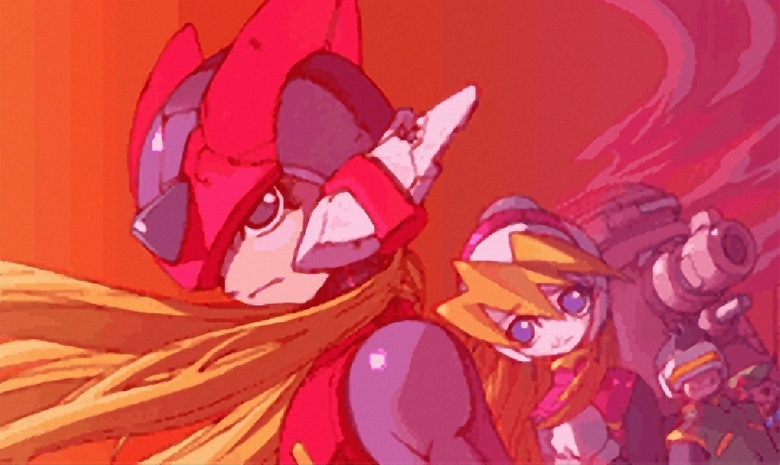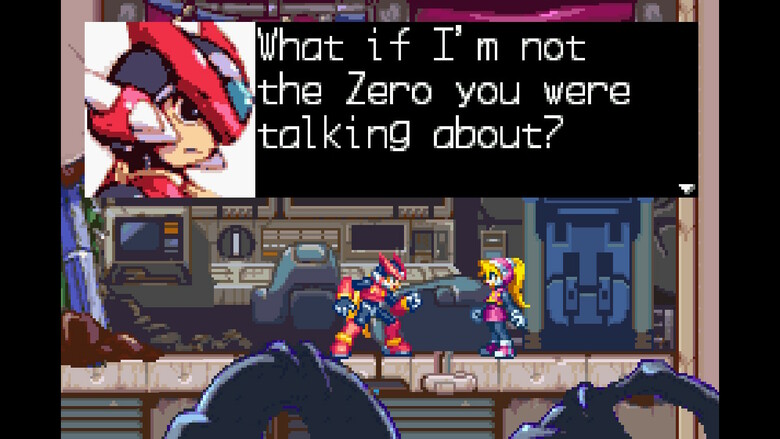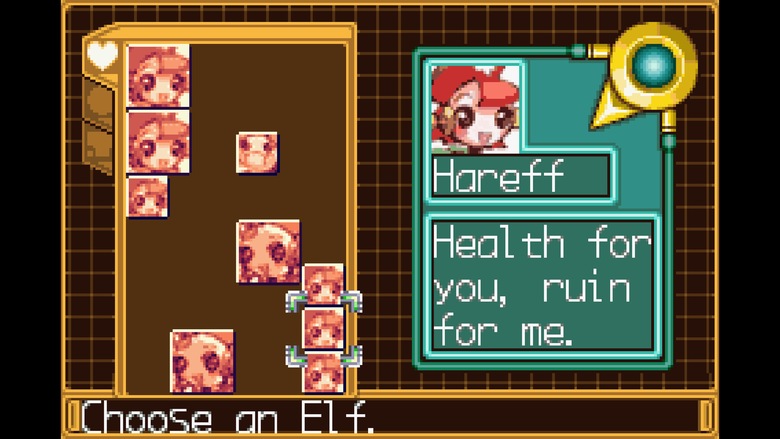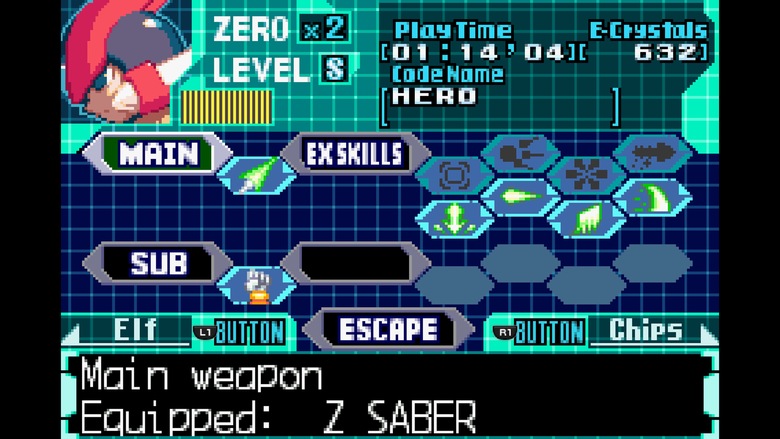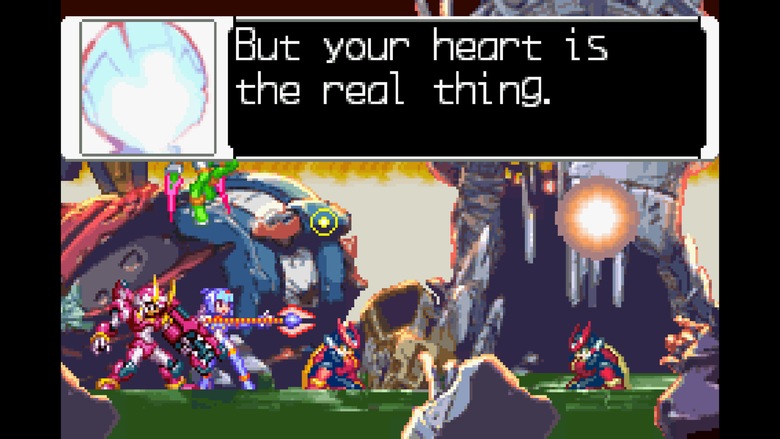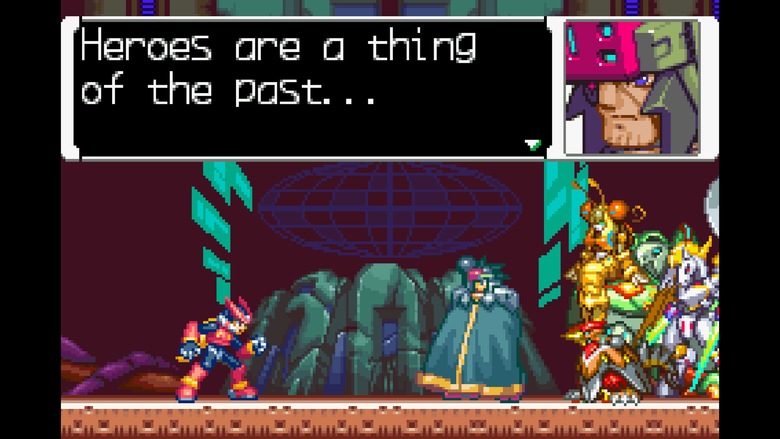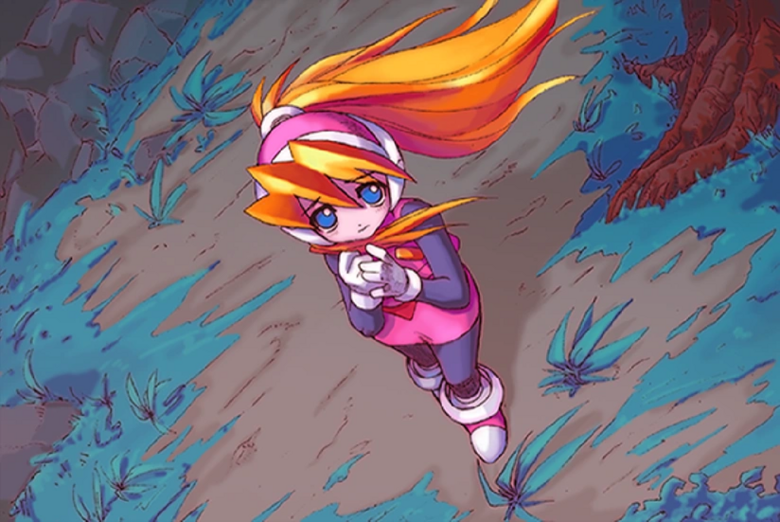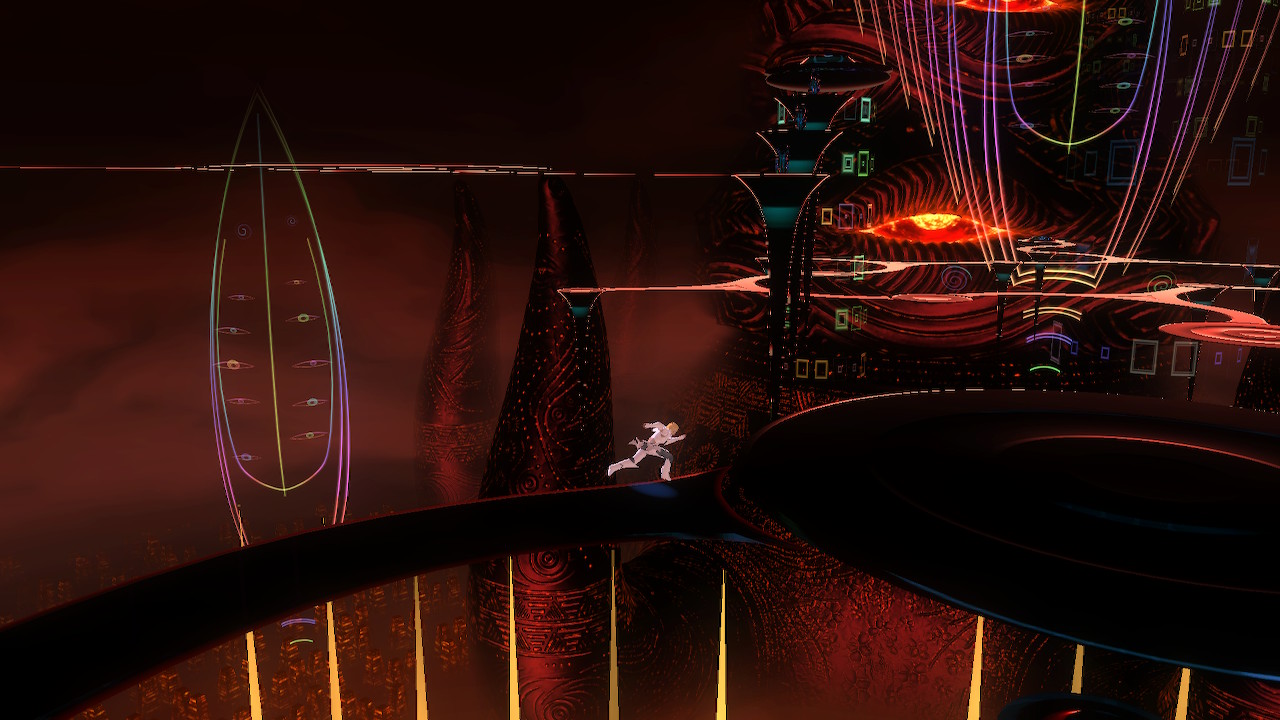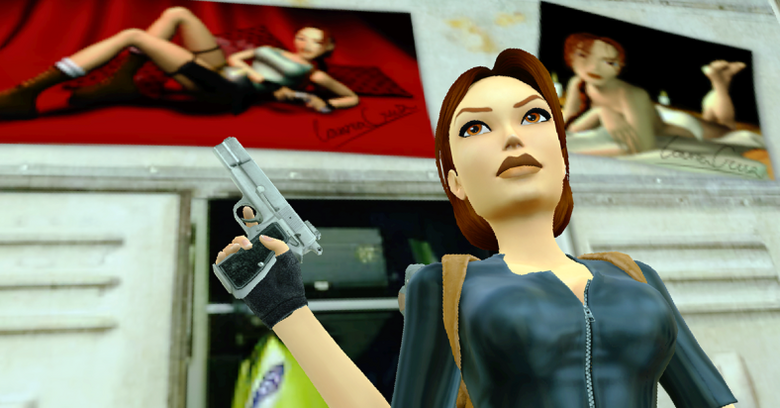Mega Man Zero Defines Being a Hero – Mega Man Monthly
Titles carry weight to them. If someone were to call me a Mega Man expert (as I force everyone who speaks to me to do), you’d get the impression that I must know what I’m talking about on the subject. Similarly, if someone were called Mega Man, you’d get the impression that he must be some legendary hero who fights for everlasting peace. You may generally be right, but the Mega Man Zero series calls that idea into question.
The title of “hero” plays a vital role in the Mega Man Zero games. Their overarching narrative revolves around the sense of self that titles provide. In these games, Zero isn’t just Zero. In a meta sense, he assumes the role of “Mega Man” Zero. No longer the cool side character, he now plays the role of the main hero. Zero’s journey throughout this saga examines what it means to be a Mega Man, and ultimately, what defines being a hero.
From the opening moments of the first game, Zero finds himself needing to live up to a title. Ciel and her group of Resistance members awoke him specifically because they needed the legendary hero on their side. However, the Zero they awaken recalls virtually nothing about his identity. He questions whether or not they found the right guy. Despite this, events progress in a way where Zero has little choice but to try to live up to the heavy burden that the Resistance places on him.
I emphasize “try” here because one of the most interesting aspects of the first game is that fully living up to expectations is optional. When you die in Zero 1, the game presents you with the option to abandon your mission. Upon picking this option, either intentionally or because you ran out of lives, the story will move forward despite your failure. While this particular feature fades away as the series progresses, that ethereal sense of challenge remains. The Zero series is simultaneously punishing and lenient, it all depends on how willing you are to push yourself.
Ciel and the Resistance’s hopes weigh on Zero in more than just a narrative sense – they directly factor into the gameplay. Creatures called Cyber Elves lend their support to Zero with abilities like extending his health bar or saving him from instant-death traps. This help comes at a cost, however: the Cyber Elf dies in the process. It’s not particularly heroic to ask others to sacrifice themselves for your sake, so your reputation takes a hit by availing yourself to their power. Through this system, you balance heroism with your skill at the game, deciding which end of the spectrum you’re more willing to give up on. No matter your choice, you are then judged accordingly.
These games constantly evaluate you and they want you to know it. At the end of each level, a ranking screen scrutinizes you on things like Cyber Elf use, enemies defeated, damage you took, and how quickly you completed the mission. Depending on how you score, you receive a lettered rank. More importantly, the game also gives you a title. Few of these titles are as glamorous as “Legendary Hero,” but I suppose “Godspeed Edgeboy” has a nice ring to it.
Zero’s reputation proceeds to literally follow him throughout the game. The lettered rank attaches itself to your health bar as a constant reminder of your performance. While some may find this discouraging, it serves an important purpose. Every mission gives Zero, and the player, a chance to live up to his reputation. The omnipresence of rankings ensures that you don’t forget that. It instills an inherent desire to push yourself. If you remove the rankings, you remove a major part of Mega Man Zero’s identity. Of course that’s easy for me to say, as I obviously never score anything except S ranks.
Later games further expand on the idea of building up your reputation by directly rewarding you for good grades. Zero’s attack arsenal expands with EX Skills that open up his combat options. Many of these skills resemble techniques that Zero could perform in the Mega Man X series, so in a way it’s like you’re bringing him closer to his formerly heroic self. If the story doesn’t incentivize you to become a hero, doing cool sword uppercut combos might.
With heroism being the ultimate goal of the Zero series, it’s no coincidence that many false heroes appear to claim the title for themselves. Every game introduces new pretenders that reflect the concept of heroism from different angles. An imposter Mega Man X runs a twisted version of the utopia that the real one hoped to create. During the second game, Elpizo attempts to upstage Zero as the Resistance’s hero through misguided means. Just about every Zero fan’s mind will race towards the series’ definitive example of the false hero: Zero himself.
Zero tears each of these “heroes” down in a way that defines his own take on heroism, and Zero’s battle with “himself” demonstrates that best. Zero 3 introduces Omega, who in actuality is Zero’s original body. This revelation calls into question everything about Zero’s identity. If the Zero that you play as is just a copy, then Omega arguably has a much greater bid to the title of “legendary hero” than your Zero does. Obviously, that’s not how it shakes out. Although Omega surpasses Zero in raw power, he lacks something important: a will of his own.
Mega Man as a franchise sporadically touches on the idea of robots having free will. In a rather dark moment at the end of Mega Man 7, Mega Man briefly considers going beyond his programming and executing Dr. Wily. Proto Man and Bass regularly disobey their creators out of what appears to be a sense of ego. Mega Man X was made specifically to be a sentient robot that can think and feel just like a human, which reflects in his pacifist disposition. Although the degrees in which each of these prior heroes can express their will may differ, they all appear to have one. Those wills shape their actions, allow them to go beyond their predefined purpose, and ultimately, make them heroes.
Through his battle with Omega, the will that had gradually been awakening in Zero up to that point leads him to victory. Although he initially fought for Ciel and the Resistance out of obligation, eventually he came to believe in their fight himself. Omega serves a master without real purpose, he fights for the sake of it. X himself appears and confirms this: Omega may have Zero’s body, but he lacks Zero’s heart. He lacks a will. By choosing to destroy his original, more powerful body, Zero accepts this will as a vital aspect to his identity.
In the aftermath of the battle, X entrusts the world to this fully defines Zero. Zero inherits X’s will, making him a Mega Man in all but name. At this point, Zero truly attains the status of hero that he had been chasing after.
That’s not quite the end of it, however. In Zero 3, Zero inherits Mega Man’s will and establishes himself as a hero. In Zero 4, he goes the extra mile and proves what that means to those who don’t believe in the concept at all.
Zero spent the first three games championing the cause of downtrodden Reploids. In Zero 4, he comes face to face with actual humans, who are none too happy with the collateral consequences of his actions. As a result of the power vacuum that Zero created, the evil Dr. Weil took control of Neo Arcadia, the human utopia. This forced humanity into a bad spot, with most having to flee the city while being hunted down by his armies.
Dr. Weil pulled the strings of Omega and most of the events that led to the conflicts in the Zero series. Although he fancies himself a ruler, he differs from the other Zero antagonists in that he does not tie himself to heroism. Instead, he sees the concept as something to exploit. He manipulated “heroes” like Omega and Copy X as means to accomplish his goals. When Zero’s heroics best them, Weil uses that heroism as a weak spot to turn against Zero.
Zero 4 creates an interesting dynamic where Zero’s reputation takes a beating from both sides. His heroism is twisted by the humans he wants to protect and mocked by the villains he needs to fight. Dr. Weil taunts Zero with his title, using it as a shield by stating that heroes are supposed to protect humans like him. Relentless assaults like these are enough to make you lose sight of what it means to be a “hero” at all.
This leads to the truth of the matter: the term “hero” shouldn’t be set in stone. When people try to narrowly define their role, especially disingenuously like Dr. Weil does, the title loses its meaning. For that reason, Zero rejects the label entirely in the best speech in all of Mega Man. He makes it clear that he only fights for the people and the causes he believes in, not some predefined purpose or vague sense of justice. That’s Zero’s will in action, and it gives him the power to defeat Dr. Weil. In the process, he leaves a legacy capable of changing the world.
Heroes matter because they often beget more heroism. Their actions carry an inspirational quality that push people to pay it forward with their own actions. One single person may not literally be able to change their world, but they can spur a collective effort of individual heroes that fight for their own beliefs. Zero 4, and the series as a whole, ends on exactly that principle. Zero’s final actions create an opportunity for humans and Reploids to settle their differences and co-exist. Ciel picks up on that opportunity and begins a new fight to see Zero’s will through.
Zero’s journey defines being a hero. His will to create a better future was carried on from the original Mega Man, to X, to himself. While he ultimately entrusts that will with Ciel in the game, I like to think that he’s also leaving it with us, the players. The Zero series consistently focuses on inspiring their players to be better – not only at the games themselves, but as people in general. If we can accomplish that, we can inspire others to do the same and collectively work towards brighter days. Even if you don’t always get an S rank for it, that’s what being a hero is all about.

